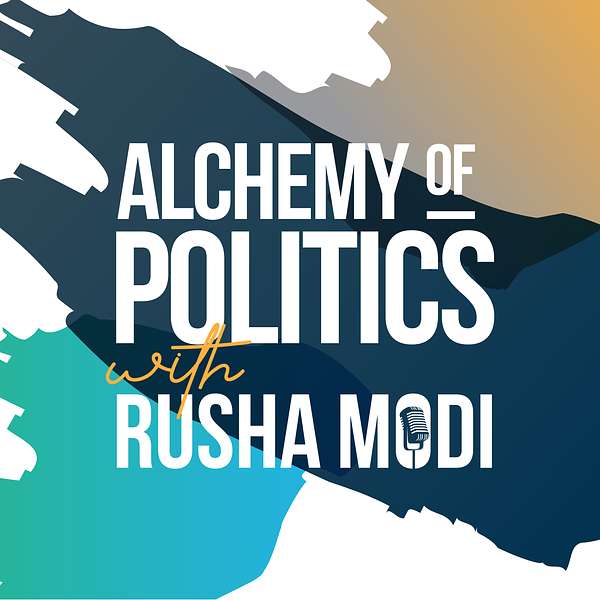
The Tomorrow List with Rusha Modi
Our national politics are crazy right now aren’t they? Haven’t they always been? It all seems like a Jenga game about to topple at any moment and the piece about to be removed by the media is sanity. If you’re like me, then we’re both fed up with the hype that passes for hope. Our response is the Tomorrow List with Rusha Modi. Beyond clickbait headlines and recycled left-right talking points are powerful unexplored ideas to level up our communities, country and planet. We traffic in solutions arbitrage: real policies and innovations that can expand the edge of what’s possible for our country. We are unafraid to take big swings at the hard policy and social questions confronting the US. Our guests will be a provocative mash-up of intellectuals, creative renegades, and leaders. Listen in and become more than just “cocktail party” smart. Set fire to the political status quo. Together, we can extend the half-life of hope one citizen, one story, one possibility at a time. And that’s not crazy at all.
The Tomorrow List with Rusha Modi
Ep. 32 - Crime and Punishment: Public Safety with Magnus Lofstrom PhD
Magnus Lofstrom PhD is one of those sophisticated intellectuals that has mastered such a breadth and depth of knowledge, but with such a casual and unassuming manner, I was immediately impressed and more than a little envious. In this fascinating interview, I chat with him about his longstanding work in public policy and specifically on the "crime wave" affecting the country and in particular California. Follow home robberies, shoplifting, and theft as well as the violence on the streets have commandeered national attention and our doom scrolling as more cellphone footage of criminal acts spreads rapidly online. He breaks down the truth from the propaganda on what's really happening to public safety in America.
In this interview, Magnus and I discuss how public safety has been at the forefront of criminal justice reforms in recent years in California. How alternative strategies to incarceration must be identified if California hopes to reduce its reliance on imprisonment and maintain public safety, listeners can visit his website at PPIC!
Key Highlights:
[00:01 - 04:56] - Opening segment
Dr. Rusha introduces Magnus Lofstrom PhD!
[04:57 - 15:29] – Addressing The Issue On Persistent Crime Rates Despite Reform
California’s incarcerated population is due to a multitude of factors
COVID's significant impact on crime rates
Factors contributing to changes in crime rates
Reducing reliance on incarceration
Recruitment and retention of law enforcement staff is challenging
[15:30 - 43:19] – Better Policing Is An Effective Strategy For Risk Mitigation
Violent crime rates have not increased dramatically in recent years
Identifying what drives the increase in crime rates
Public safety
Significant justice reforms in the past decade
[43:20 – 55:24] - Closing Segment
Magnus believes suggests that changes in law enforcement personnel, recruitment issues, and tension between communities
Listeners are invited to visit https://www.alfiekohn.org/!
Connect with Magnus Lofstrom PhD at his:
Website: PPIC
Website: IZA
LinkedIn: Magnus Lofstrom PhD
CRAVING MORE?
What are you waiting for? Head to Alchemy of Politics; join the conversation and start a change reaction! Follow us on Instagram and Tik Tok.
You can connect with Dr. Rusha on LinkedIn, Instagram, Facebook, and Twitter.
Thanks for tuning in! If you liked my show, LEAVE A 5-STAR REVIEW, like, and subscribe!
Share it with your friends, and family, and spark a conversation. Contribute, comment, and disagree.
Remember: Solutions, not shouting.
Tweetable Quotes:
Magnus Lofstrom PhD - "Whatever we think are key contributing factors to these changes, we need to look for things that are taking place throughout the nation.”
Magnus Lofstrom PhD - "When we are talking about these changes, what you really would like to have is a very clear and direct answer."
Dr. Rusha Modi - “Reintegration is really a challenge for not just people who were incarcerated, but for a lot of dispossessed and underserved communities just in the country, and it highlights that social inequality.”